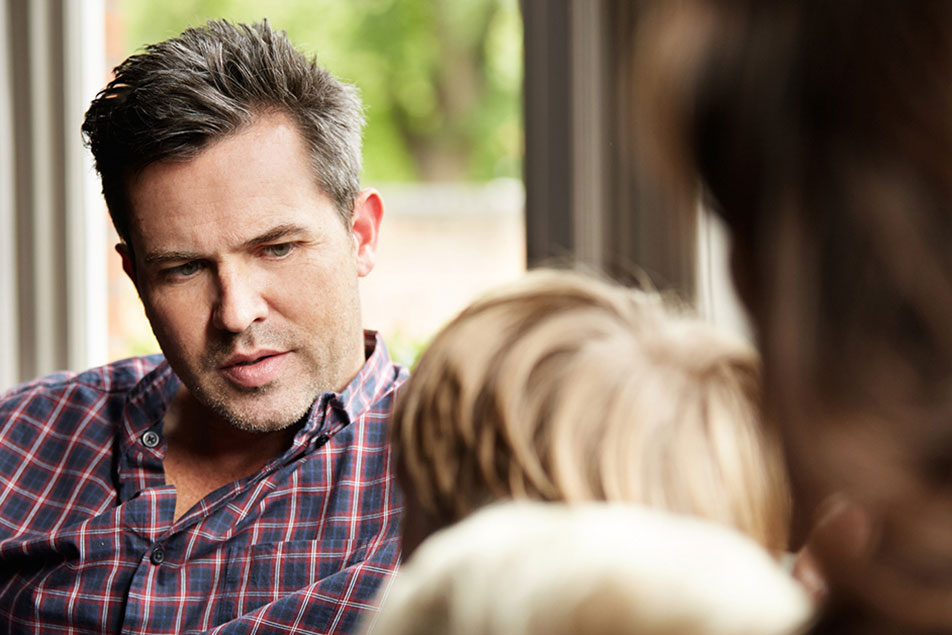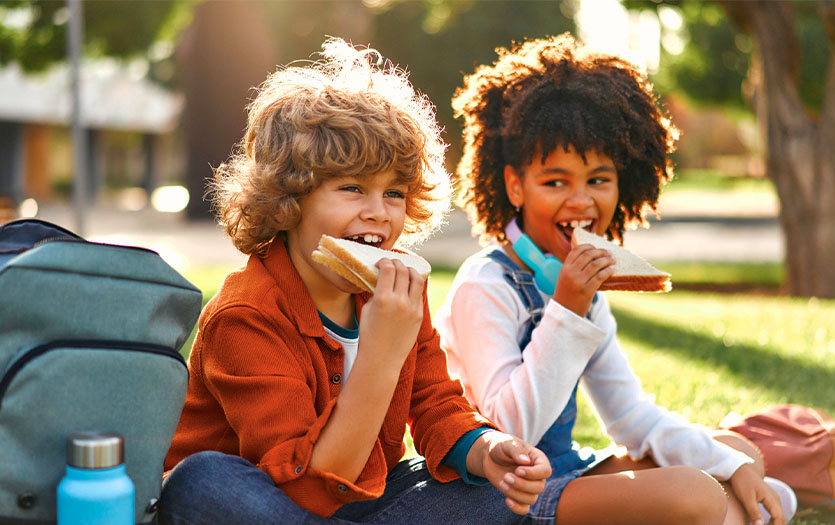In the wake of a series of catastrophic events, many parents are struggling with how to talk to their children about tragedy. It can be difficult, especially when we can’t always understand such things as adults. Molly Gerke, child life specialist, helps us navigate this difficult situation.
Waking up on Monday morning to news of the Las Vegas shooting prompted a lot of different feelings and questions. As adults with developed brains, we often struggle to wrap our minds around such tragic events. We tend to ask ourselves, “How could someone do such a terrible thing?” “Why does violence continue to occur and be so catastrophic?” “Should I worry and am I safe?” We may never have the answers to such questions, but we do have the skills to appropriately process and cope with tragic events. What about those young, developing, information-seeking, imaginative minds? How do we help children process and appropriately understand the violent attack that occurred late Sunday evening?
The truth of the matter is, children will be exposed to this information whether they hear it on the radio, see it on the TV, overhear an adult conversation or their friends talk about it. No matter the source of exposure of a traumatic event, children can feel scared, anxious, sad or confused. We subconsciously do whatever we can to protect our children, and instinctively, that may come in the form of shielding them or hiding things from them. When in reality, the effects of shielding can be more detrimental to a child’s development. This doesn’t mean that we tell them every detail and use language that can lead to more misunderstandings or fear. As caregivers, our biggest responsibility during a traumatic time is to create a reassuring, supportive and trustworthy relationship with our children.
Since several days have already passed since we news of this horrific mass shooting broke, it’s likely that your child has already heard something about the event. Maybe you are searching for the right things to say or ways to answer questions. The reality is, you know your child better than anyone else. Yes, it is important to be age-appropriate when having difficult conversations such as this. However, simply establishing a household where they feel safe to openly, candidly and expressively discuss current events or tragic news stories is the first step toward helping children cope.
I have created an acronym TRUST to help identify ways to talk to children about tragedies:
T - Talk to your children about what happened. First, find out what they already know and how they are feeling.
R - Reassure your child that they are safe. Have an open discussion about safety. Identify what we do to keep ourselves safe, what families do and what communities (i.e. schools practicing drills) do to practice, promote and establish safety.
For younger children, have a discussion about safety and heroes. Talk about the jobs out there that help keep people safe. (ACTIVITY: Have your child draw a picture or write a letter to the rescue teams – police stations, fire departments, first responders, etc. – and individuals in the Las Vegas area thanking them for their bravery and what they do every day.)
U - Understand your child’s feelings. Validate their emotions and help them to identify them. Discuss with them that it is important they express their feeling and let their feelings out (see Strategize for coping with feelings). Also, during difficult conversations it is important to understand when your child has had too much information or if the information could be confusing and lead to misconceptions. These conversations should be guided by the child. If a child says out of nowhere, “I want to go play,” then you should take that as a cue they have had enough. They will process it and then may possibly come back for more clarification or information later.
S - Strategize a coping plan together. Create opportunities for them to express their emotions. Examples would be writing out worries and feeding them to the worry eater, journaling about feelings, drawing about how they feel, utilizing deep breathing techniques, etc. When children are given opportunities for emotional expression they are able to process them better.
T - Tell the TRUTH. It is okay to not have all the answers. Tell them what you do know and don’t make things up or keep important details from them as a way to protect them. It is better that they hear it from their parents first. If they have already heard the news it is still important to have a discussion. Children may not have questions right away, but creating a safe environment where they feel comfortable asking any questions at any time is extremely important and plays an important factor in continuing a trusting relationship with your child.
Looking at trauma through a child’s eyes.
As mentioned above it is important to have age-appropriate conversations. Here is a resource from PBS about the developmental needs, actions and considerations when discussing traumatic events.
Additional Resources:
- Tips for Talking with and Helping Children and Youth Cope After a Disaster or Traumatic Event: A GUIDE FOR PARENTS, CAREGIVERS, AND TEACHERS
- Children’s books that can aid in starting conversations or continuing dialogue and opportunities for emotional expression:
- “A Terrible Thing Happened” by M. Holmes
- “Alex and the Scary Things” by M. Moses
- If reading a children’s book, an example of a conversation starter and an opportunity for your child to identify with a character could be … “Do you ever feel _______ like _______ does?” (from the story)
- 9 Ways to Help Your Kids Cope with News of the Las Vegas Shootings




